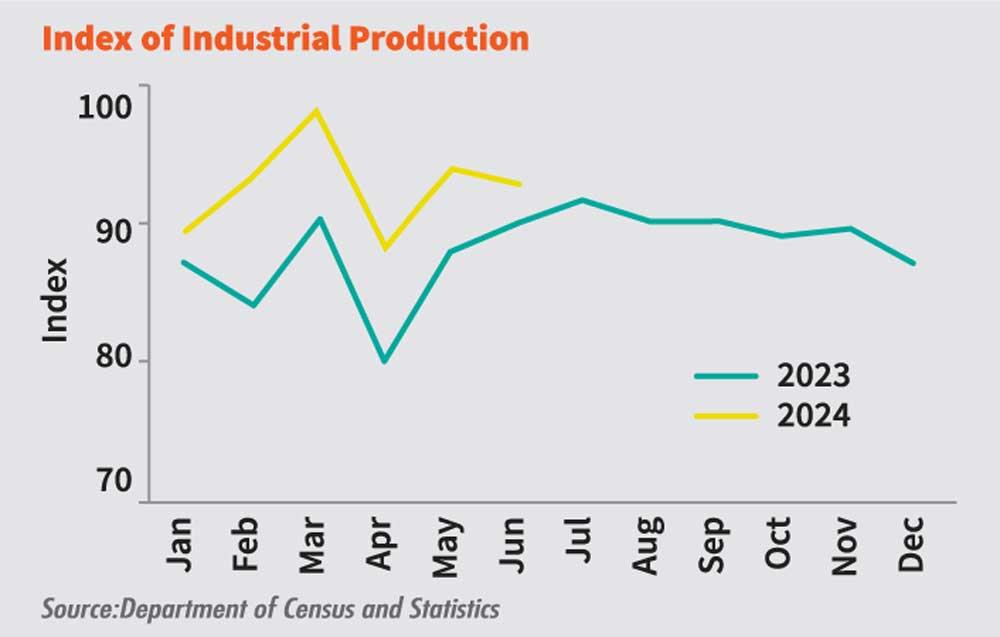Reply To:
Name - Reply Comment

Sri Lanka is gradually clawing back its industrial heft it lost two years ago when it nearly ran out of foreign currency, reflecting that the manufacturing sector is on its way to its former glory. Reason being, the recovery of demand and the easing production and funding costs.
The Index of Industrial Production, a closer gauge of the country’s industrial heft, recorded an index value of 93.0 for June, logging a 3.3 percent advance from a year ago.
The recovery in the industrial activity reflects the demand both locally and internationally as seen from the rising consumer spending and the resilient merchandise exports with a soft patch seen in textiles and garments.
For instance, the June industrial production has been largely driven by food products manufacturing which rose by a robust 17.9 percent from a year earlier.
Demand for food products is an indication that the people at home are consuming more after they were pummeled by red-hot inflation back in 2022 and 2023.
Besides, the export of food remains also relatively strong, as per the recent external sector data. In June, exports earnings from food, beverage and tobacco which are categorised together rose by a robust 28.2 percent to US$ 51.7 million, taking the first six months income to US$ 312.6 million, up again by 25.6 percent from the same period last year.
Wearing apparel remains the sour spot as its index value fell by 10.6 percent in June from a year ago.
Sri Lanka’s apparel sector has been going through a bit of a challenging period due to soft demand from its customers in the USA and Europe. But the demand is recovering as of late as these economies have successfully skirted prolonged downturns and is now cutting rates once again which will bode well for consumer spending.
The other manufacturing segments which helped the June industrial production are the manufacturing of chemical and chemical products and non-metallic mineral products of which the sub-indices rose by 10.0 percent and 7.0 percent respectively.
Rubber and plastic products manufacturing rose modestly while coke and refined petroleum products and beverage products manufacturing fell by 31.4 percent and 3.9 percent respectively.